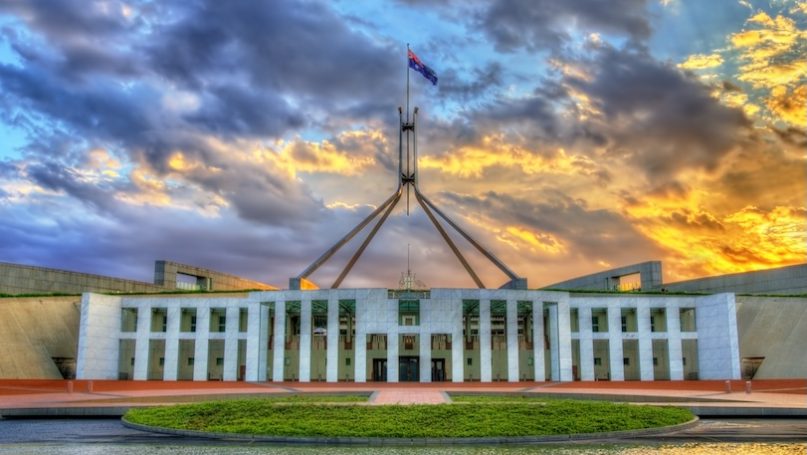
May 3 will be a defining moment for Australia as it holds the federal election that will determine whether Anthony Albanese and the Labor Party continue to retain power, or if Peter Dutton and the Liberal-National Coalition take over. Australia holds a special position as ASEAN’s first-ever dialogue partner, making this election particularly noteworthy for ASEAN countries. When observing the Australian election, ASEAN countries typically observe from afar, adhering to their principle of non-interference. However, observing from afar does not mean being without certain expectations. Regardless of the election’s outcome, ASEAN should expect a more progressive partnership with Australia, particularly to ensure stability in the Indo-Pacific and resilience against global challenges.
Today, the world is facing 10% universal tariffs imposed by US President Donald Trump. On top of that, there are also the so-called US “reciprocal tariffs”, which are far higher – although these have been temporarily paused for 90 days, except for China. Speaking of China, the world must cope with the dire consequences of the worsening US-China trade war in the last couple of months. Since the beginning of 2025, both countries have imposed a series of escalating tariffs, including the US’s 145% tariff on Chinese goods and China’s 125% tariff on American goods. This situation is likely to cause economic uncertainty for ASEAN, a regional grouping composed of developing countries that critically need stability to promote their trade and investment.
Malaysia, as ASEAN Chair this year, has attempted to lead a unified ASEAN response to this particular global situation. This includes the initiative to make a phone call with regional leaders from Brunei, Indonesia, the Philippines, and Singapore to coordinate a mutual response, immediately after Trump’s announcement of “reciprocal tariffs” on 5 April 2025. Malaysia aims to present a united regional front to ensure ASEAN’s collective voice is heard on the international stage. Hopefully, this voice will also resonate with Australia.
In light of this global economic challenge, ASEAN countries are likely to reduce their reliance on the US market and seek to boost trade with other strategic partners. Australia must seize this shared pressing issue as an opportunity to strengthen its ties with ASEAN and diversify its markets further. Last February, Australia ratified the upgraded ASEAN-Australia-New Zealand Free Trade Area agreement. Among others, this agreement aims to help micro, small, and medium-sized businesses benefit from trade within ASEAN. This could serve as a significant hope for ASEAN to anticipate and mitigate the potential impact of prolonged global economic crises.
Aside from geographical features, Australia and ASEAN countries stand apart in their histories, identities, demographics, and cultures. These differences naturally shape their political priorities and the attitudes of their respective politicians, including how they perceive global politics and the Indo-Pacific. While ASEAN places dialogue mechanisms at the cornerstone of reaching consensus without creating formal alliances, Australia has historically leaned toward alliances. It was a famous quote from former Prime Minister Robert Menzies: “Our great and powerful friends” that reflects Australia’s alliance with the US, while still maintaining ties with Britain.
However, these divergent approaches have not obstructed the ASEAN-Australia partnership. Even today, maintaining stability in the Indo-Pacific must become more crucial amid the sweeping tariffs imposed by the US. Australia and ASEAN are aware that they have no choice but to make the best of their differences. And that’s what they have done so far. Australia established a comprehensive strategic partnership with ASEAN in 2021. ASEAN is a vital trading partner for Australia, with two-way trade amounting to $192.9 billion in the 2023-2024 fiscal year. The establishment of the ASEAN-Australia Center in Canberra last year marked another milestone, fostering connections among teachers and students across the region.
ASEAN understands that Australia’s Indo-Pacific strategy often focuses on counterbalancing China’s influence through strategic partnerships. Meanwhile, ASEAN Outlook on the Indo-Pacific (AOIP) defines its own strategy. AOIP aims to foster a peaceful, stable, and prosperous region with ASEAN at its core as the driving force. ASEAN avoids being drawn into the rivalry among great powers. Instead, ASEAN welcomes all partners to contribute to regional peace and stability.
Navigating partnerships with ASEAN is no simple task. Australia has long been uncertain about the dynamic stance of ASEAN countries toward China, but this dynamic is intrinsic to ASEAN’s nature. Therefore, rather than fixating on ASEAN’s fluctuating relationship with China, Australia should focus on fortifying its own partnership with ASEAN. With China’s growing influence, ASEAN must assert its constructive stance toward Australia. At the same time, incidents like the formation of AUKUS in 2021, which caught ASEAN nations by surprise, must not be repeated.
While Australia is entitled to join “minilaterals”, sudden moves are always unwelcome – even by Australia itself. Rumors suggesting that Russia was seeking to base military aircraft in Indonesia apparently caught Australia by surprise, even leading Peter Dutton to make an inaccurate claim. Indeed, Indonesia has denied the rumors, but it serves as an important lesson for Australia. ASEAN needs assurance that Australia is a genuine partner, not a proxy for great powers. As former Prime Minister Malcolm Turnbull urged, Australia must “stand up for Australia” and approach its relations with the US as transactionally as the US does with Australia.
In sum, ASEAN needs Australia as much as Australia needs ASEAN. The winner of the upcoming Australian election should avoid Trump-like behavior and instead envision coexistence with ASEAN as close neighbors, safeguarding regional stability. Without ASEAN, Australia risks being left adrift in the Indo-Pacific.
Further Reading on E-International Relations
- Opinion – ASEAN’s Diplomatic Culture and Strategic Adaptability
- ASEAN’s Sempiternal Challenge: Maintaining Centrality in the Indo-Pacific
- Opinion – Bangladesh at the Centre of Australia’s Focus on the South
- Opinion – Emerging Patterns of Trade in the Indo-Pacific
- Opinion – With the Rise of the ‘Indo-Pacific’, Has the ‘Asia-Pacific’ Faded Away?
- Opinion – The 2025 Philippine General Election and US Strategy in Asia